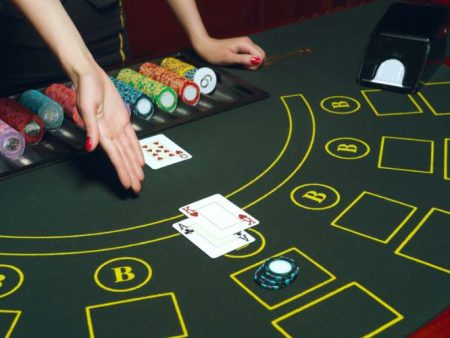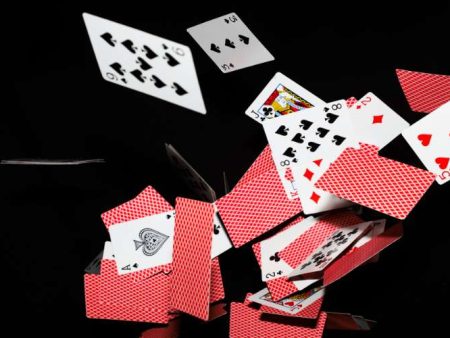
What's on this page
Baccarat is one of the most iconic casino games around the world. From Monte Carlo to London, this game has drawn both seasoned players and beginners alike. But the big question that arises is: Is Baccarat a game of skill or luck? It’s a question that has intrigued players for years, and one I’m excited to dive into.
Throughout this article, we’ll explore the mechanics of Baccarat, break down the debate between skill and luck, and debunk some common myths surrounding the game. By the end, you’ll have a clearer understanding of what really influences the outcome of each hand.
The Basics of Baccarat
Before we get into the debate of skill vs. luck, let’s first understand the game itself. Baccarat is incredibly straightforward. There are three main betting options: Player, Banker, and Tie. The goal is to predict which hand will win – the Player’s or the Banker’s – or if the game will end in a Tie. The hands are dealt from a shoe, and each hand consists of two cards.
The hands are scored based on their total value, with face cards and tens counting as zero. For example, a hand with a King and a 7 will score 7 points. The highest possible score is 9. It’s a simple game, but the odds and the outcomes can be a lot more complex than they first appear.
In Baccarat, the odds of winning vary depending on what you bet. Betting on the Banker’s hand generally has a lower house edge, while betting on a Tie offers much higher payouts but comes with a much higher risk. As a player, understanding these Baccarat odds is key to making the most informed decisions.
Understanding Luck in Baccarat
When it comes to Baccarat, luck plays a huge role. The very nature of the game is random. Cards are drawn from a shoe, shuffled, and dealt, and there’s very little a player can do to influence the cards they’re dealt. This randomness is where luck comes in, as no strategy can predict or control the outcome of each hand.
The game’s structure ensures that each round is a fresh start, unaffected by previous hands. For instance, some players may believe that if a certain hand wins multiple rounds in a row, it’s due for a change. But in reality, this is just a classic myth that many people fall for.
Some players even try to use systems based on card patterns, but in truth, Baccarat is primarily a game of luck. The shoe is shuffled after every few hands, which means past results have no bearing on the future. This is why luck is often a dominant factor in the game.
Exploring the Skill Aspect in Baccarat
While luck is an undeniable factor in Baccarat, many players argue that there’s room for skill to play a role. Baccarat may be a simple game, but there are aspects of the game that experienced players can use to their advantage.
The first aspect to consider is money management. Being able to handle your bankroll wisely can make a huge difference in your long-term success. Setting win and loss limits, along with knowing when to walk away, can help you make smarter decisions and avoid overextending yourself.
Another important aspect is betting strategy. While there’s no way to influence the cards, Baccarat winning strategies can be used to decide when to bet and how much to wager. For example, one popular method is the Martingale strategy, where you double your bet after each loss. Although it doesn’t guarantee success, it’s a strategy used by some players to manage risk.
Additionally, card counting in Baccarat can help some players track the number of high and low cards that have been dealt. However, it’s much less effective than in other games like Blackjack because of the way the shoe is shuffled and reloaded.
Ultimately, the key to incorporating skill into Baccarat is understanding the odds of the game and making informed decisions based on your budget and risk tolerance. It’s more about playing smarter, not necessarily manipulating the outcome.
Analyzing the Role of the House Edge
In Baccarat, the house edge plays a significant role in the overall outcome of your bets. The Banker bet has a house edge of about 1.06%, while the Player bet has a slightly higher edge at 1.24%. The Tie bet, on the other hand, has a much higher house edge, often around 14%.
This makes a huge difference in the long run. Even if you use Baccarat winning strategies, the house edge is always there, waiting to chip away at your bankroll. However, understanding these odds can help you make smarter bets, especially when you focus on the Banker or Player options, which offer better long-term value.
It’s also important to consider that Baccarat is primarily about managing your bankroll effectively. If you can keep your bets consistent and avoid falling into the trap of chasing losses, you’ll be in a much better position to minimize the impact of the house edge.
Famous Baccarat Players and Their Impact on the Game
Some of the most notable figures in gambling have made a name for themselves in the world of Baccarat. For instance, the legendary James Bond character made Baccarat a household name in the 1950s with his high-stakes games at the casino.
In the real world, players like Cheung Yin “Kelly” Sun have made a mark with their skillful card counting, while other professional gamblers have used betting systems to gain an edge. However, their stories often paint an overly romanticized picture of the game, which leads many players to believe that skill can truly alter the outcome.
These stories do have some truth to them – but they often fail to mention that Baccarat is still a game of luck, and that no amount of strategy can guarantee you will win every time. That’s why understanding the role of luck is so important.
Baccarat Variants and How They Affect the Skill vs. Luck Debate
There are several Baccarat variations that players can enjoy, including Punto Banco, Chemin de Fer, and Baccarat Banque. Each variant has subtle differences in rules, but the core principles of the game remain the same.
For example, in Chemin de Fer, players take turns acting as the Banker, which introduces a bit more strategy and skill into the mix. However, in Punto Banco, the most common form of Baccarat, the outcome is mostly determined by luck. The presence of different variants doesn’t significantly shift the skill vs. luck balance but does give players more options for how they engage with the game.
Online Baccarat has also become increasingly popular, with variations such as live dealer games offering players the ability to enjoy a more immersive experience. These technological advancements have only added to the excitement of the game, but at its core, Baccarat remains a game of chance.
Conclusion
In conclusion, the debate over whether Baccarat is a game of skill or luck is complex but ultimately leans more heavily toward the latter. While there are strategies, betting systems, and money management techniques that can help improve your overall experience, luck will always play the dominant role in determining the outcome of each hand.
That said, Baccarat is still incredibly enjoyable, and its simplicity is part of the charm. Whether you’re playing seasonal slot games or enjoying a thrilling round of Baccarat, always remember to play responsibly. Set your limits, enjoy the ride, and never chase losses. Baccarat’s unpredictable nature is what makes it so exciting – but understanding the odds and the role of luck will help you become a more informed player.





